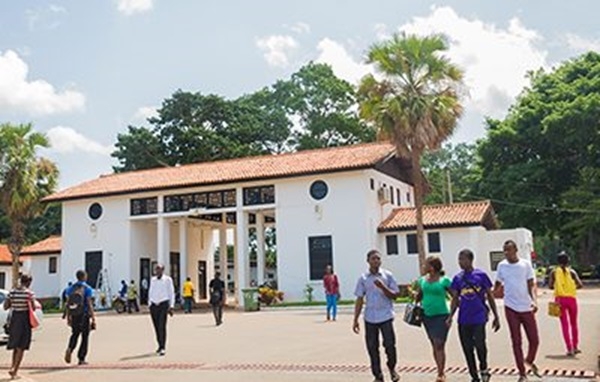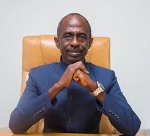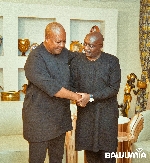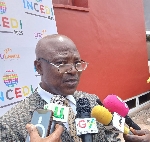President Mahama launches “no fees stress” policy to remove financial barriers to tertiary education
 University students
University students
President John Dramani Mahama has officially launched the landmark “No Fees Stress” policy in Koforidua, a government initiative aimed at eliminating financial obstacles that prevent many Ghanaian students from accessing tertiary education.
Addressing a gathering of students, education officials, lawmakers, and development partners, President Mahama described the policy as a “bold, equity-driven intervention” designed to ensure that no Ghanaian child is denied admission to a public tertiary institution due to an inability to pay academic fees.
“This policy is more than a budgetary item,” the President declared. “It is a moral, constitutional, and developmental imperative.”
Under the No Fees Stress policy, beginning this academic year, the government will absorb all academic-related fees for first-year students admitted into public universities, technical universities, colleges of education, and nursing training institutions across the country.
The move is part of the broader RESET Agenda for equity and inclusive development, with President Mahama noting that “behind every unpaid fee is a dream deferred.”
He cited sobering statistics from the Ghana Tertiary Education Commission, revealing that thousands of qualified students either defer their programmes or drop out annually because they cannot afford the cost of admission.
For instance, while student allowances remain around GHS 200 a month, admission fees for colleges of education and nursing institutions can range from GHS 1,362 to GHS 2,340 — an impossible barrier for many families.
“These are not just statistics,” Mahama emphasised. “They represent real people, real stories, and real lost opportunities.”
The No Fees Stress policy includes several targeted measures to support educational access and equity:
Full absorption of academic-related fees for all first-year students in public tertiary institutions
“Student Loan Plus” initiative, offering simplified and expanded access for continuing students
Free tertiary education for persons with disabilities, in line with the Disability Act
Adjusted student loan amounts to reflect the actual cost of tertiary education
Reimbursement of up to GHS 2,500 for students in fee-paying programmes with no regular-track equivalent
Targeted scholarships for underserved regions and critical development disciplines
“This is not charity—it’s about fairness,” Mahama said.
“We are restoring dignity to the Ghanaian student.”
He further clarified that the initiative is not a replacement for existing allowances or student loans, but rather a complementary policy that addresses the critical financial burden at the point of entry into tertiary education.
President Mahama also pointed to global best practices, referencing countries like Germany, Finland, Norway, and Scotland, where free or publicly subsidised tertiary education has helped reduce inequality, increase productivity, and promote inclusive growth.
“Education is not a cost to be feared but an investment to be protected,” he said, adding, “Ghana must not be left behind.”
The President used the occasion to rally support from all corners of society. He urged students to take full advantage of the opportunity, tertiary institutions to implement the policy transparently, and the private sector and development partners to co-invest in Ghana’s intellectual future.
“Let us work together to raise a generation of Ghanaians who are confident, skilled, and ready to build a prosperous and united nation,” he said.
President Mahama announced that academic user fees for an initial 15,000 students have already been cleared under the new policy, calling it a clear signal of the government’s commitment to social justice and equal opportunity.
“From today, no Ghanaian child will be denied tertiary education simply because they cannot afford the academic fees,” he declared.
In concluding his address, President Mahama said the policy fulfils the state's obligation under Article 38(3) of the 1992 Constitution, which mandates the provision of equal access to university or equivalent education for all.
“We are building a Ghana where opportunity is not inherited but created—where education is not rationed by class or cash, but granted by merit and upheld by the collective will of the Republic.”
Source: Classfmonline.com/Cecil Mensah
Trending News

Suhum NDC Youth Wing holds one-week observation for helicopter crash victims
09:57
NDC to set up committee for selection of candidate for Tamale Central
08:13
GRASAG National mourns ministers and six others killed in helicopter crash
02:22
You reflects Atta-Mills' 'Asomdwehene' traits - Ghanaians to Bawumia
08:27
Police announce temporary road closures for state funeral for helicopter crash victims
09:41
Asantehemaa Nana Konadu Yiadom III: Asanteman Youth Association mourns 'pillar of wisdom'
02:12
INCEDI 2025: Dr. Tony A. Bediako urges bold, digital education drive to "bridge hope, opportunity in the Global South"
04:15
Alhaji Limuna was a cherished uncle-Abu Jinapor
03:46
Catholic and Anglican bishops pay courtesy call on President Mahama
09:29
Nana Konadu Yiadom III: One Week Celebration of Asantehemaa slated for Thurs Aug 21
02:02




